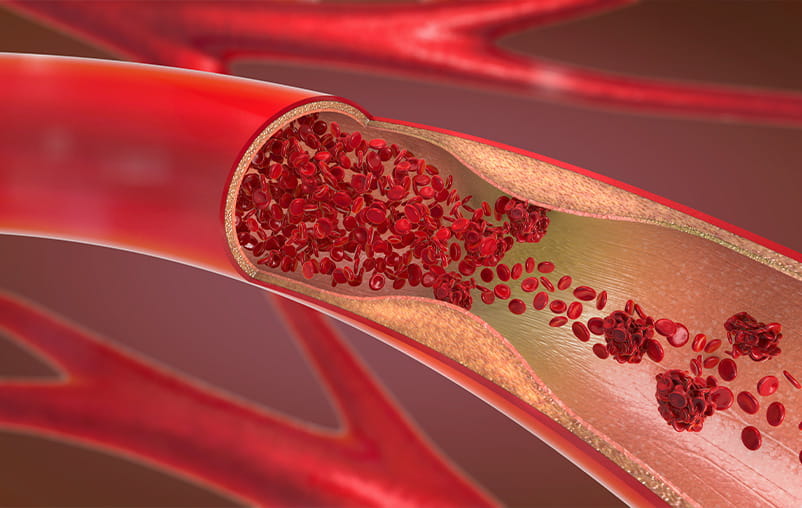If you have diabetes, you might be concerned that you’re at a higher risk of contracting COVID-19. You may also be worried that you could be more vulnerable to complications from COVID-19. So, what is the link between diabetes and COVID-19? And, how do you protect yourself from potentially developing complications from this virus if you have diabetes?
Diabetes and COVID-19 risk factors
According to the American Diabetes Association, there is currently not enough information to determine if those with diabetes are at a greater risk of contracting COVID-19. However, those with diabetes can be more susceptible to infections and viruses in general. This is because diabetes can lead to a suppressed immune system, possibly due to high blood sugar levels in the body. If you do have diabetes, you’ll want to take extra precautions to protect yourself during the COVID-19 pandemic.
It’s also important to note that those with other underlying medical conditions that weaken the immune system may also be more susceptible to COVID-19. Some of these medical conditions include:
- Cancer
- Chronic kidney disease
- Weakened immune system from organ transplant
- Obesity
- Heart conditions
- Sickle cell disease
Additionally, those who are elderly can be more vulnerable to complications from the coronavirus as well. In fact, 8 out of 10 COVID-19 deaths in the U.S. have been in adults 65 years or older.
Can diabetes potentially lead to complications from COVID-19?
People with diabetes have a greater risk of developing complications from coronavirus. This includes those who have type 1, type 2 and gestational diabetes. When a person with diabetes contracts a viral infection, it can increase inflammation or internal swelling in their bodies which may be caused by above-normal blood sugar levels.
Those with diabetes and a suppressed immune system may struggle more to fight off the virus which can lead to a longer recovery period. There’s also evidence that viruses may thrive in in your system if you have elevated glucose levels which could potentially lead to more health complications.
For those with diabetes and heart disease, you may be especially susceptible to complications from coronavirus. In fact, diabetes and heart disease are among the leading underlying illnesses linked to death from COVID-19.
If you have diabetes, the likelihood that you could have heart disease increases. Make sure to stay up to date with your doctor on your overall health to include your cardiovascular health.
How to protect yourself from COVID-19 if you have diabetes
As mentioned above, if you have diabetes or other underlying health conditions, you’ll want to take extra precautions to protect yourself from COVID-19. In addition to practicing good hand hygiene you’ll also want to:
- Maintain good physical distancing techniques including limiting the number of people you encounter and your time in public places.
- Wear a mask in public or in situations where physical distancing is difficult
- Clean and disinfect your house often—especially high touch surfaces such as countertops, desks, phones, keyboards, toilets, etc.
- Monitor your health daily and call your doctor if you develop any COVID-19 symptoms such as fever, cough or shortness of breath.
- Wash your hands often and well (for at least 20 seconds with soap and water).
- Manage your diabetes with a good diet and exercise.
Additionally, you should:
- Stock up on diabetes supplies and over-the-counter medicine in case you’re quarantined, including stocking enough insulin for the week ahead.
- Pay extra attention to your glucose levels.
- If you live alone, make sure that you have someone who is available to help you.
- Keep your doctor informed of any changes to your health and continue to have regular checkups.
What do I do if I get COVID-19 and I have diabetes?
If you experience any symptoms of COVID-19 including, fever, cough or shortness of breath, call your doctor immediately. Be aware that any infection may raise your glucose levels, so continue to monitor them carefully and inform your doctor of any changes.
It's also important to closely monitor your ketones, the chemical produced by your liver when you don’t have enough insulin in your system to convert sugar to energy.
When you talk to your doctor make sure to ask:
- If you’ll need to adjust your diabetes medicine if you’re sick
- How often you’ll need to check your blood sugar and ketones
- What remedies and over-the-counter medicines are safe for you to take
- When you should seek emergency medical help
And remember, if you experience any of the following symptoms, seek medical attention right away:
- Moderate or large ketones
- Diabetic Ketoacidosis (DKA) symptoms like tiredness, weakness, body aches, vomiting or belly pain
- Severe shortness of breath
The best way to stay healthy during this pandemic is to proactively manage your health through good diet and exercise and to practice good hygiene and physical distancing techniques.
The Texas Diabetes Institute offers a multi-disciplinary approach to the treatment, health promotion, patient education, professional training and research of diabetes. For more information, call 210-358-7000.




